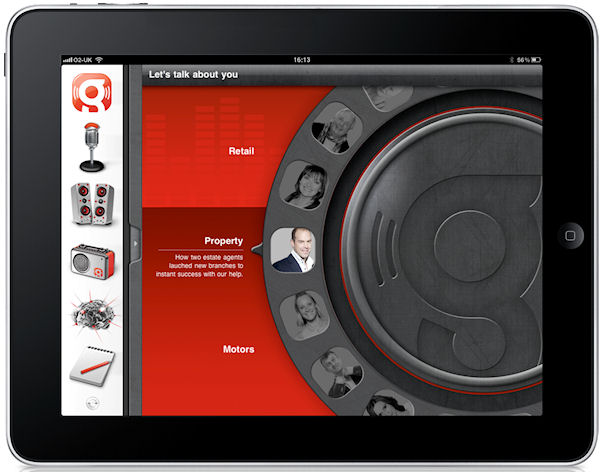App 2.0
While ‘applications' have been around for decades, it's only really since the launch of the iPhone in 2007 that we've been using the term ‘apps' to describe applications that run on modern mobile platforms.
But since then the term has become ubiquitous and, according to Mark Mason - the CEO of business app developer Mubaloo - the rise of the app has only just begun.
"We're moving to app 2.0, where companies are starting to really understand apps. It's not a matter of if, but when," said Mason, in an interview with mobile-device.biz. "It's clear to me that everyone's going this way - consumers are demanding it."
Mason thinks the current situation is analogous to the situation we were in with the Internet a decade or so ago. Back then all companies knew they needed to be online, but a lot of them weren't sure what form that should take or it would benefit their business.
Mubaloo was founded in April 2009 after Mason sold his marketing agency. He then teamed up with CTO Ben Trewhella (pictured, below right, with Mason) who had developed an app that provided price information about local petrol stations. The company specialises in developing apps for businesses, which usually either take the form of external branding apps and internal organisational tools.

There's almost no limit to the things companies could potentially have apps for; from training, to HR matters, to scheduling, to sales tools. We remarked that not many people would be keen on taking up most of their smartphone homescreen real-estate with company apps. "For businesses we create app corridors, where one app opens up access to a number of others," replied Mason.
The first raft of business apps made by for the insurance and spread-betting industries. Betting is big for apps as it's an impulse-purchase. Now the most popular type of app is one that integrates into back-office systems, for example logistics. "These days everyone always has a smartphone with them, so they're great for mobile collaboration and location-based apps," said Mason.
But Mason's vision for tablets is no less lofty. "Tablets are going to take over the laptop in my opinion; the user experience is moving to touch and tablets are already being used a lot as a presentation tool," he said. The screenshot below is from an app Mubaloo developed for UK commercial radio company Global Radio as a presentation tool for its salespeople.

Clearly iOS is the biggest platform for Mubaloo right now, but Mason stressed Android is pretty big too and he expects Windows phone to make a move soon. "Windows will be the third mobile platform, but while we're starting to see it come through slowly, there's not a lot of demand for it right now."
We also discussed the relative merits of native apps versus web apps. Native apps will always get the nod if you want to take advantage of the full functionality of the mobile device, as they're written specifically for the platform. On the flip-side, since web apps are accessed through the browser they're cross platform. Furthermore they sidestep the need to pay the platform-holder a cut of every sale.
While someone who earns their living from developing apps is bound to talk up the potential of that market, it's hard to argue with Mason's assertion that we're on the cusp of app 2.0. Modern mobile platforms are still very young, and their growth only went exponential in the past year or so. As the installed-based approaches ubiquity more money than ever is likely to be invested in apps.













